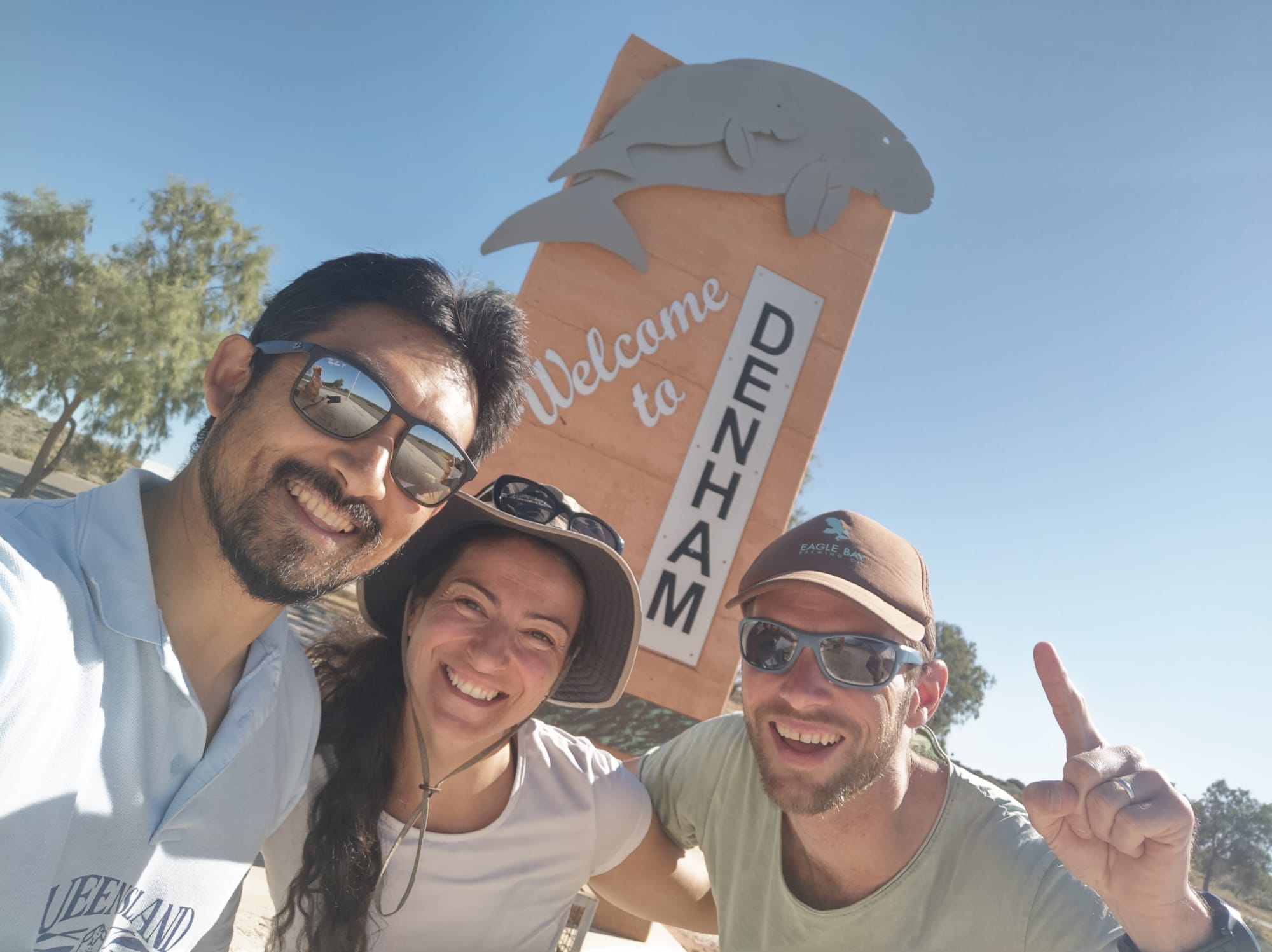We have satellite-tagged our first turtle for the Gathaagudu Animal Tracking (GAT) Project!
The Sequeira Lab is excited to announce that we have recently returned from our first field trip to Shark Bay or “Gathaagudu” as it is called by the Malgana Peoples, the traditional owners of this region in Western Australia.

The Sequeira Lab is excited to announce that we have recently returned from our first field trip to Shark Bay or “Gathaagudu” as it is called by the Malgana Peoples, the traditional owners of this region in Western Australia. The field trip was part of the Gathaagudu Animal Tracking (GAT) Project , co-led by Dr Ana Sequeira and Dr Matthew Fraser, and which is aimed at working together with the Malgana Peoples to study the movement and habitat use patterns of dugongs, turtles, and tiger sharks in this UNESCO World Heritage Area. These species, together with the extensive seagrass beds in the bay, are of key ecological importance, as our PhD Candidate Michael Taylor is investigating. And the field trip provided an excellent opportunity to work in collaboration with our friends and colleagues, Dr Takahiro Shimada, a turtle expert, Sequeira Lab alumni who is now a Principal Conservation Officer for the Queensland Government, and Dr Christophe Cleguer, a PostDoctoral Research Fellow and dugong expert from Murdoch University. And we are also thrilled to report that, despite the long list of challenges that needed to be overcome, we have satellite-tagged our first loggerhead turtle!

We have returned to Perth with a renewed respect for all researchers who do field work to collect the precious tracking datasets from marine megafauna (especially those with who we have the pleasure of collaborating through the MegaMove project)!
This trip was a fantastic experience, made even better by the great collaborations we established with experts in the field, local Malgana Peoples, and DBCA staff. Thanks to the Malgana Aboriginal Corporation, the UWA and DBCA staff who are supporting this project, and a big thank you to our philanthropic funders (including the Jock Clough Marine Foundation) for making this project possible. We are looking forward to our next trip to Shark Bay later this year to tag some more animals!
